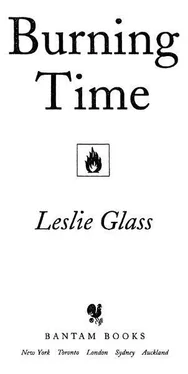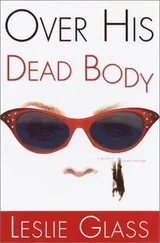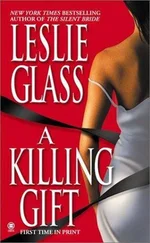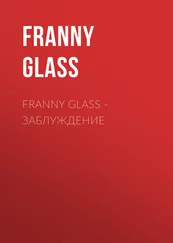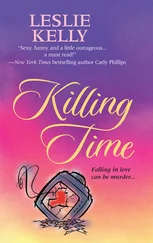“I said I’m busy now. Do it to yourself.”
“All right.” She sniffed angrily and put her hand to her crotch. She had a very small tuft of light brown hair. She started exploring it with her fingers. She became engrossed almost immediately.
For a minute or two she stood there swaying in front of him, dancing to the music in her head with both hands teasing at her crotch. Then suddenly she squatted on her heels and shoved her two fingers as deep inside as she could get them.
17
“Have you checked with Sex Crimes?” Milt asked.
Newt stirred his coffee with a bent spoon. Absently he bent it back into shape. “Yes. No burning or branding cases in San Diego at the moment. Plenty of other kinds of assault, though. They have a rapist that dresses up as Superman, even has a cape.”
They were in the café down the street from the sheriff’s office, talking the situation over. The coroner’s report had been filed. The data on the unidentified dead girl was in the computer. Now they had to wait and see if something came up.
Milt started on his second doughnut. It was heavily frosted with glaze. Whenever he was distressed, he ate. He was silent, chewing thoughtfully.
“What about your friend in Twentynine Palms?” Newt asked. He wasn’t going to eat a doughnut no matter how tempted he got. They gave him heartburn. He kept that heartburn in mind as he watched Milt swallow.
“I was getting to that. I sent him the report, the photographs, everything,” Milt replied, licking his fingers.
“And?”
“And he’s on his way up here to have a look. He says the shape of the brand, or the object that made the burn, was not quite as clear on his victim. The appearance of the burn was altered by a superimposed bacterial infection of the surrounding skin. You know—gas formation, skin slippage.”
“What does that mean to me, Milt?”
“That means the girl in Twentynine Palms may have lived longer. Her wounds became infected before she died. He wasn’t even absolutely sure it was a brand. Except that even with the swelling and blurring around the edges, it had a very distinct shape. Now we have a better picture of it. It’s the only thing we have to go on. Maybe it’s his totem, or something.”
“Christ.”
Milt swallowed some cold coffee. “Real unusual. I’ve never seen anything like this. There’s no physical evidence at all.”
Newt nodded grimly. “That’s what Sex Crimes said. If they mutilate them, they usually kill them first. Very rare to torture them and then let them go.”
“The girl in Palms was found only a quarter of a mile from the road. She may have walked a long way. A little farther and she might even have been saved. You have any idea what it’s like to die of dehydration?”
Newt didn’t answer. He watched Milt take another doughnut.
“It’s a slow, agonizing death,” Milt said, his mouth full. “There’s military medical literature on it from American and Nazi soldiers who fought in the African Campaign in World War Two.”
“I’ll be sure to read it.” Newt shook his head apologetically. “Sorry. I just keep thinking there might be others out there. What do we do, get a copter and patrol a hundred of miles of desert, in case he decides to do it again?”
“Oh, hell do it again,” Milt said.
“Jesus. A serial brander whose victims die of—what would you say—natural causes?”
Milt put some money down. “No, I wouldn’t say that.”
“Maybe we ought to get the computer people on it. Maybe it’s not a local person, and there are cases of it somewhere else.”
“Maybe.”
“But you don’t think so?” Newt said dejectedly.
“Newt, I have no idea. I don’t even know if VICAP would even come in on something like this.”
Milt got up and dusted the sugar off the front of his shirt. After he had been gone for a minute or two, Newt ordered a doughnut.
18
“Great lunch,” Jason said.
“Yeah, it’s great to be together,” Charles agreed.
It was about fifty-five outside, the warmest day in months. Charles and Jason walked along the East River after lunch in Charles’s elegant apartment on East End Avenue.
“Isn’t this great?” Charles demanded. He pointed out to the water where a large sloop sailed between two barges. “Look at that boat. God, I’d love a boat.”
“When would you use it?” Jason laughed. “With the country house and the Caribbean vacations, skiing trips to Vail … Must be tough.”
Charles hunched his shoulders a little at the dig. Charles, who looked like he could be Jason’s brother, came from an extremely wealthy Westchester family. Jason came from the Bronx, had scholarships in college and medical school, and helped support his family all through his training. They met the first day at the New York Psychiatric Center where they did their training, and had been friends ever since.
“I don’t know. I’d find the time. I want to take up sailing. I didn’t sail as a kid. Did you?”
“No,” Jason said. The Bronx didn’t have much of a coastline. And his family’s primary concern had been food and shelter.
“Don’t have kids,” they liked to tell him. “They’ll drain you of your life’s blood and keep you as poor as we are.”
Now they were mad because he was married to a shiksa and were convinced God had made her barren to punish him. Jason had given them no grandchildren; what kind of son was that? They didn’t know he was the ambitious one, the one in the marriage who didn’t want life complicated by children. Until recently, Emma hadn’t seemed to care very much, either. Only recently had the question of enlarging their family become an issue that smoldered away under the surface of their daily life. Now he was beginning to see how much Emma wanted and needed a child.
Charles strode along, breathing deeply. “Isn’t this great? I just can’t stand being in the city on weekends. I feel caged. I really do. I need to be outside.” He swung his arms. “I need exercise.”
“Don’t you run?” Jason asked. Like Emma, Jason liked to run. It was good for the heart, made his body strong, and gave him energy. It was like taking an upper. The view wasn’t much different on Riverside Drive. They had good paths and trees and a river over there, too.
“Oh, yeah, and I go to the gym and play racquetball, but that’s a sprinter’s game. It’s not like standing back at the baseline in tennis and really smashing the ball.”
“No,” Jason said.
“Well, I can’t complain. Brenda had my office redecorated. It’s really nice now. I work a half a day a week at the hospital, to keep my hand in. Go away most weekends.” And there was Rosalie. Charles didn’t mention Rosalie, a colleague he popped from time to time when opportunity presented itself. He didn’t tell Jason things like that anymore. “Life is a well-oiled machine these days. Everything in its place and running smoothly. We’ve got it made. You’re the famous one. I’m the drone.” Charles laughed.
Jason had been putting one foot in front of the other, listening, listening. All afternoon. Listening with empathy was what he was famous for. Now he could contain himself no longer.
“Look, Charles. Something terrible is happening to me,” he blurted out. “I don’t know. I just—I’m falling apart.…” Jason’s steps faltered.
They were just at the bottom of the park, about to head back to Seventy-ninth Street down the broad walk along the river. Charles caught him under the arm. His somewhat vacant, smug expression was instantly wiped away. The intense, searching face that Jason used to know and hadn’t seen in many years reappeared.
It was the face of the young Charles who had come to work on the sixth floor of the Center one morning in their second year to find a beautiful, sixteen-year-old, acutely psychotic patient hanging by the neck on an exposed pipe in the ceiling. All her vital signs were gone, but Charles wouldn’t accept her death. He had never accepted the credo that patients like her couldn’t be treated with psychotherapy, either. He resuscitated her, and treated her for years after his training was completed. The girl recovered and never had another psychotic incident.
Читать дальше
